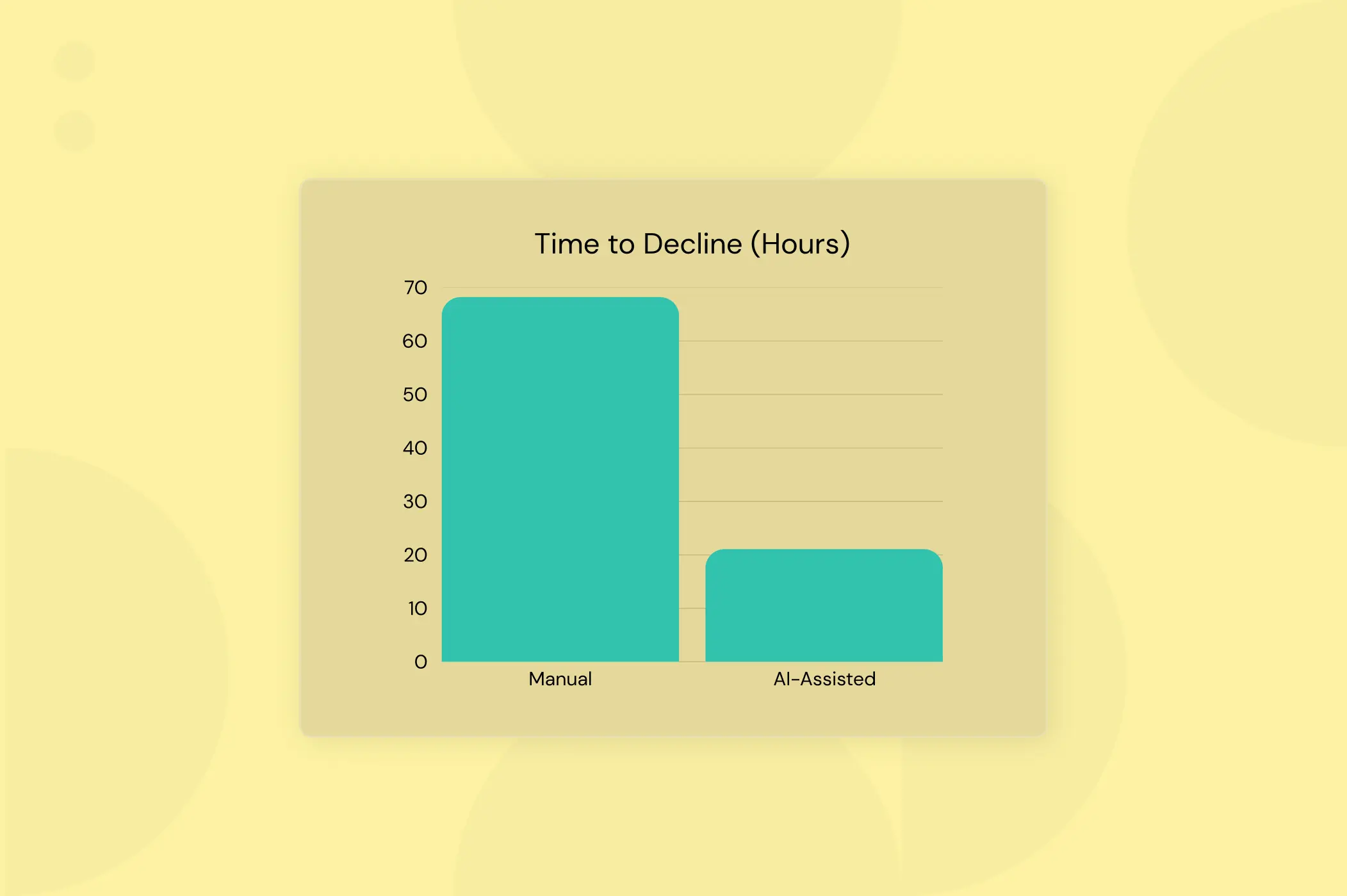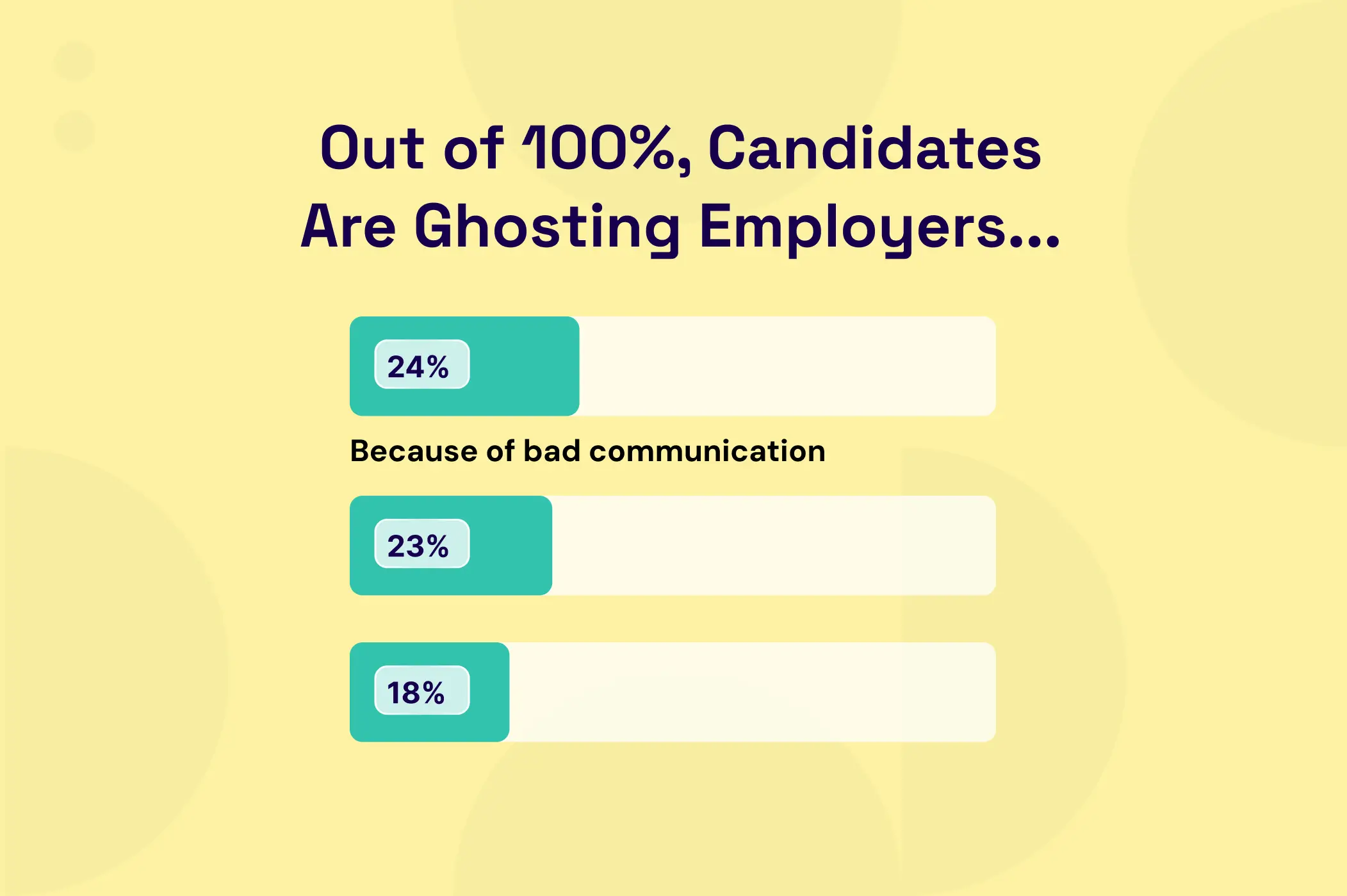Key Takeaways:
- Pre-sharing Interview Questions Improves Candidate Experience: Providing interview questions in advance enables candidates to prepare effectively, shifting the focus from on-the-spot performance to relevant skills and experiences.
- Inclusive for Neurodivergent Candidates: This approach benefits neurodivergent candidates by allowing them to prepare in a manner that suits their cognitive processes, promoting inclusivity and fairness in the interview process.
- Encourages Accountability and Aligns with Company Values: Asking interviewers to prepare questions in advance fosters accountability and transparency, while candidates receiving questions beforehand are encouraged to engage in thorough preparation, reflecting a mutual commitment to an honest assessment process.
______________
For the last seven years, I’ve worked in the TA/Recruiting space, primarily in Recruiting Operations. During that time, I’ve scheduled 10k+ interviews, worked with hundreds of candidates as both a coordinator and recruiter and helped quite a few companies design their interview processes with candidate experience in mind. In some cases, there has been a budget to pick up tools and in others, I’ve worked with completely free resources I built from scratch. But at the heart of it all is a focus on creating an environment that enables candidates to succeed. And one of the best ways to do that is actually incredibly simple and costs nothing: provide interview questions to candidates in advance.
Now, I’ve worked with hiring managers and interviewers who completely disagree. They argue that if the candidate receives the questions in advance, then the candidate isn’t themselves, they’re a version that appeals to the company. They want to know how the candidate would respond on the spot and in real-time. They want to catch the candidates in any line with their prepared gotcha questions.
But let’s take a journey on why this is an outdated philosophy and how providing the questions upfront actually makes for a better candidate experience.
Unlock the Future of Recruiting— Book a Demo Today!

Interviewing is Kabuki
Kabuki is a form of classical theater in Japan known for its elaborate costumes and dynamic acting where events and people are characterized more by showmanship than by content. This is also true of interviewing, except that candidates are expected to deliver both content and showmanship to a script and show they’ve never seen before. Interviewers, as the audience, know the show (the company), the lines (the role), and everything in between (the questions). In the end, it is the candidate who is evaluated on their performance, not the interviewer.
Modern interviewing doesn’t require this level of theater. If your organization has an open role, it is because there is a problem that needs solving candidates are there to offer their experiences and services to solve it but they need to know what the question is first. By providing your interview questions upfront, you allow the candidate to prepare and present in a way that has nothing to do with showmanship and everything to do with addressing the role in the first place.
______________
The STAR Method shows its true power
Read any interviewing post or article and you are likely to see advice that says all your answers should look like this:
- STAR - Situation - Task - Action - Result
- SAR - Situation - Action - Result
- PAR - Problem - Action - Result
- CAR - Challenge - Action - Result
- SOAR - Situation - Objective - Action - Result
This advice makes sense as it serves as a story framework that should be easy to follow for the interviewer because it emphasizes whether the candidate can organize their thoughts, leverage their executive presence, and be persuasive. But read that again, it benefits the interviewer more than the candidate. Why? Because the interviewer can easily see the question and immediately know if the candidate is off-track.
The candidate, however, is being asked to multitask, which isn’t good, by remembering the question while giving the answer. While many people will say “Sure but the candidate could write the question down!”, no candidate wants to create that awkward pause or create a shadow of doubt about their abilities by devoting time to short-handing an interview question.
______________
Benefits to your Neurodivergent Candidate Pool
The reality is that most interview processes are designed for neurotypical candidates. Seldom are interviews designed with neurodivergent candidates in mind. Often, companies ask the latter group of candidates to be more like the former rather than the other way around. For candidates on the autism spectrum and some with ADHD, interviewing can be especially stressful because it is a break with patterns, added energy to interpreting reactions/tone, or difficulty wrangling all your thoughts together. Speaking from personal experience as a member of the neurodivergent community, it is really hard to process all that information at once and still believe you are delivering good answers to a question you think you remember. By having the questions upfront and utilizing a universal design approach, all candidates, including the neurodivergent community, have an opportunity to succeed.
______________
Keeping with Company Values
Plenty of companies have transparency, honesty, accountability, and a myriad of other words around openness that are set as values. Yet, many try to keep their interview questions close to the chest. If you are asking candidates to show, not tell, in their resumes and as part of your interview process through projects and tests, the same courtesy should be offered to a candidate on the employer's end.
______________
Giving the Questions in Advance Forces Accountability for Your Interview Teams and the Candidate
This might be the biggest hurdle to overcome if you want to make the switch to giving the candidates the interview questions. Too often the response recruiters and RecOps people get when they ask for the questions in advance is “Oh well we’ll solve that problem when we get there. I don’t have time for that right now. Okbyeeeee.” It is a problem for another day and benefits the hiring team more than it does the recruiter or the candidate. If you are a company that wants to start doing this, you might want to think about tracking your time to alignment or developing your hiring manager maturity model.
On the candidate side, if you get the questions in advance and choose to not prepare, you’ve made a business decision. When that decision backfires, fingers don’t get pointed at the company, they get pointed at the person in the mirror. I’ve spoken to many candidates, and I’ve even been one, where the rejection call goes like this:
Recruiter: “Hi - I’m sorry we decided to move forward with another candidate. Ultimately, the team felt they were able to get a better understanding of their experience against the questions.”
Candidate: “Hey - Thank you. You know, you gave me the opportunity to do my best by giving me the questions upfront. After the interview, I realized my answers to these XYZ questions weren’t great because I didn’t prepare for them. I’ll be better next time.”
______________
What to Do If You Want to Implement This Tomorrow:
Here are three ways:
- If you have a mature hiring process with structured interviews already - Take the questions, put them your candidate.fyi portal or create branded doc as part of your interview prep 1-pager, and send it to candidates.
- If you have a hiring process with structured interviews but your teams don’t want to share the questions prior to the interview - Create a slide deck template, take the interview questions, drop them into the “presentation”, include the link in each interviewer’s calendar invite for the interview, and tell them to share the presentation.
- If you have a hiring process but your teams don’t want to share the questions prior to the interview because they are still working on them - Advise that you should not proceed with any candidates interviewing until the questions are solidified. Winging the questions and going on vibes can actually lead to poor hiring decisions and tremendous bias.
______________
In closing
By providing your questions in advance to candidates, you are taking a step forward to creating an equitable interview process without an unbalanced power dynamic. This is also a change that makes a huge difference in everyone’s experience. Ultimately, if providing the questions in advance is too scary, think about taking the questions and putting them on a slide so that the candidate can see them when they respond. We are visual creatures after all.
______________
Author Bio
A recognized expert in Recruiting Operations (RecOps), Jeremy Lyons has created innovative solutions to reduce everyday RecOps challenges, cut agency/tool spending significantly, while also bridging international operational gaps and training the next generation of RecOps professionals at companies and organizations of all sizes. With a flair for asking insightful questions and a spicy take or two, Jeremy is a sought-after speaker, podcast guest, and writer in the RecOps space, contributing valuable insights on process, documentation, and recruiting coordinator enablement to name a few. He is the main editor for RecOps Collective’s RecOps Roundup, a free weekly newsletter containing news, resources, and open jobs in the RecOps space.
Connect with him on LinkedIn or send him an email (jeremy@recopscollective.com).


.webp)








